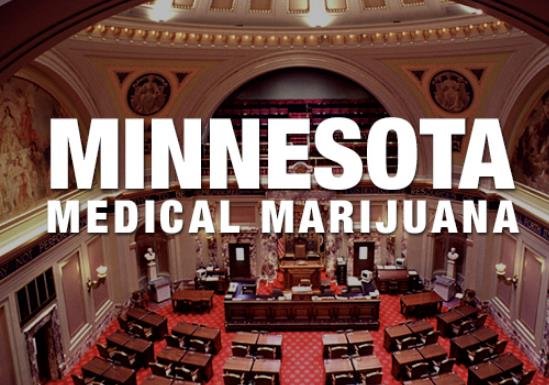Minnesota has officially opened the doors for cannabis entrepreneurs. Starting February 18, hopeful business owners can apply for licenses to join the state’s emerging adult-use cannabis market. The application window is open until March 14, with lotteries set to determine the first wave of license holders later this year.
State Begins Accepting Cannabis Business Applications
The Minnesota Office of Cannabis Management (OCM) is spearheading the licensing process, marking a significant milestone for the state’s legal cannabis industry. Officials are now processing applications for a range of business types, including:
- Microbusinesses and mezzobusinesses
- Cultivators and manufacturers
- Retailers and wholesalers
- Transporters and testing facilities
- Delivery services
- Medical/adult-use combination licenses
Eric Taubel, the OCM’s interim director, emphasized the importance of getting licenses into the hands of business owners as quickly as possible. “There is a great deal of interest from business owners who want to get started in this new space,” Taubel said in a press release.
The application window is open to both verified social equity applicants and general applicants. However, not all licenses will be available in unlimited quantities, making the competition fierce.

Capped vs. Uncapped Licenses: What It Means for Applicants
Minnesota’s licensing framework includes both capped and uncapped license types. Four categories—mezzobusiness, cultivator, manufacturer, and retail—are subject to strict limits. Meanwhile, the other six categories, such as delivery services and testing facilities, have no set caps.
For social equity applicants, the process includes additional advantages:
- Half of the licenses in capped categories will be awarded through a separate lottery specifically for verified social equity applicants.
- If a social equity applicant is not selected in the initial round, they will automatically be entered into the general lottery for those same licenses.
- Uncapped license applicants who meet social equity criteria will be approved automatically.
The state’s approach aims to create opportunities for those disproportionately affected by past cannabis-related policies while maintaining an open-door policy for general applicants.
Cities and Counties Can Apply for Retail Licenses
Municipalities looking to enter the cannabis market also have a chance to get involved. The OCM clarified that cities or counties interested in operating a municipal cannabis store must apply for a retailer license during this application window. Unlike privately owned businesses, municipal cannabis licenses will not be subject to a lottery, ensuring local governments have a direct path to participate in the industry.
This move could significantly impact how cannabis is distributed across Minnesota. Some cities might use municipal stores to keep cannabis sales under local control, similar to how some states handle alcohol distribution through government-run liquor stores.
What’s Next for Minnesota’s Cannabis Licensing?
The state’s cannabis market is rolling out in phases, with additional licenses expected to open later this year:
- Summer 2024: Cannabis event organizer license applications will begin.
- Fall 2024: Low-potency hemp edible manufacturer and retailer licenses will be accepted.
These upcoming licensing opportunities suggest that Minnesota is aiming for a well-regulated, structured expansion of the industry rather than a chaotic launch.
How Competitive Will the Market Be?
With Minnesota’s population of over 5.7 million, there’s significant demand for legal cannabis. The challenge for new businesses will be securing one of the coveted capped licenses or positioning themselves strategically in the uncapped sectors.
For context, other states have seen intense competition in similar license lotteries. In New York, for example, only a fraction of applicants secured dispensary licenses in the first round, leaving many waiting for future openings.
Minnesota’s system, which prioritizes social equity while balancing market demand, may help create a more inclusive industry. However, the actual success of this approach will only become clear once the first businesses start operating.
With just under a month for applications, prospective cannabis entrepreneurs will need to move quickly. The next few weeks will determine who gets a foothold in Minnesota’s newest industry—and who will be left waiting for the next round.
Emily Wilson is a talented wordsmith whose passion for cannabis shines through in her eloquent articles that explore the plant’s cultural significance and historical context. With a focus on arts and lifestyle, she weaves together narratives that celebrate the creativity, innovation, and community fostered by cannabis enthusiasts worldwide. Emily’s unique perspective and engaging storytelling invite readers to embark on a journey of discovery and appreciation for the diverse facets of the cannabis experience.








